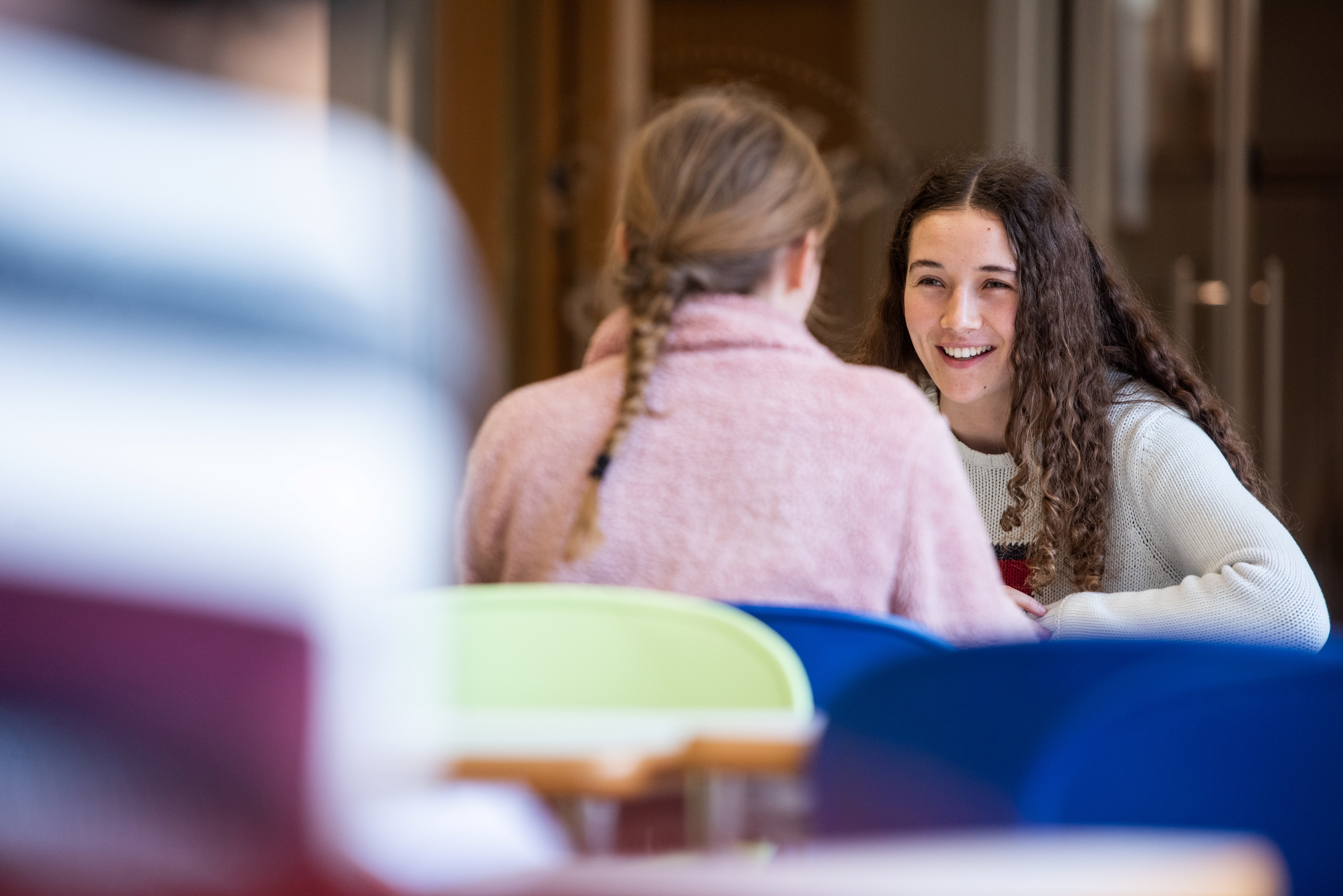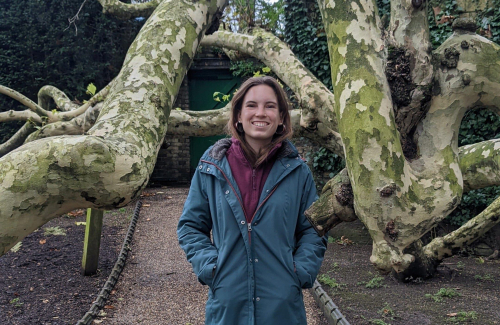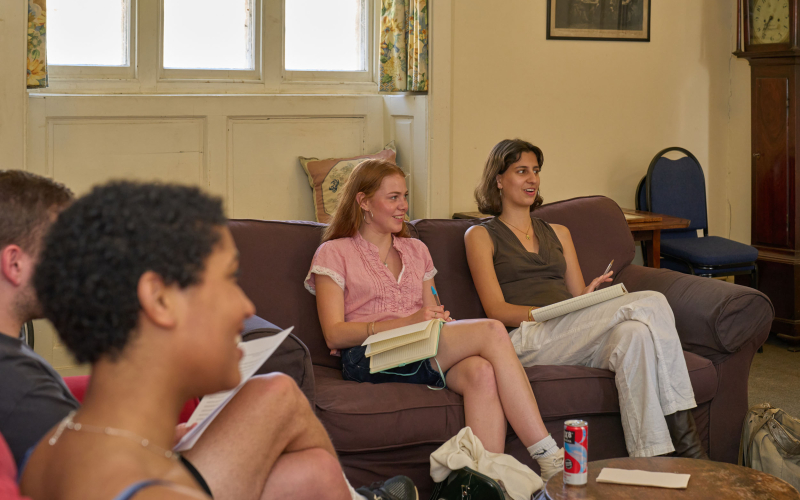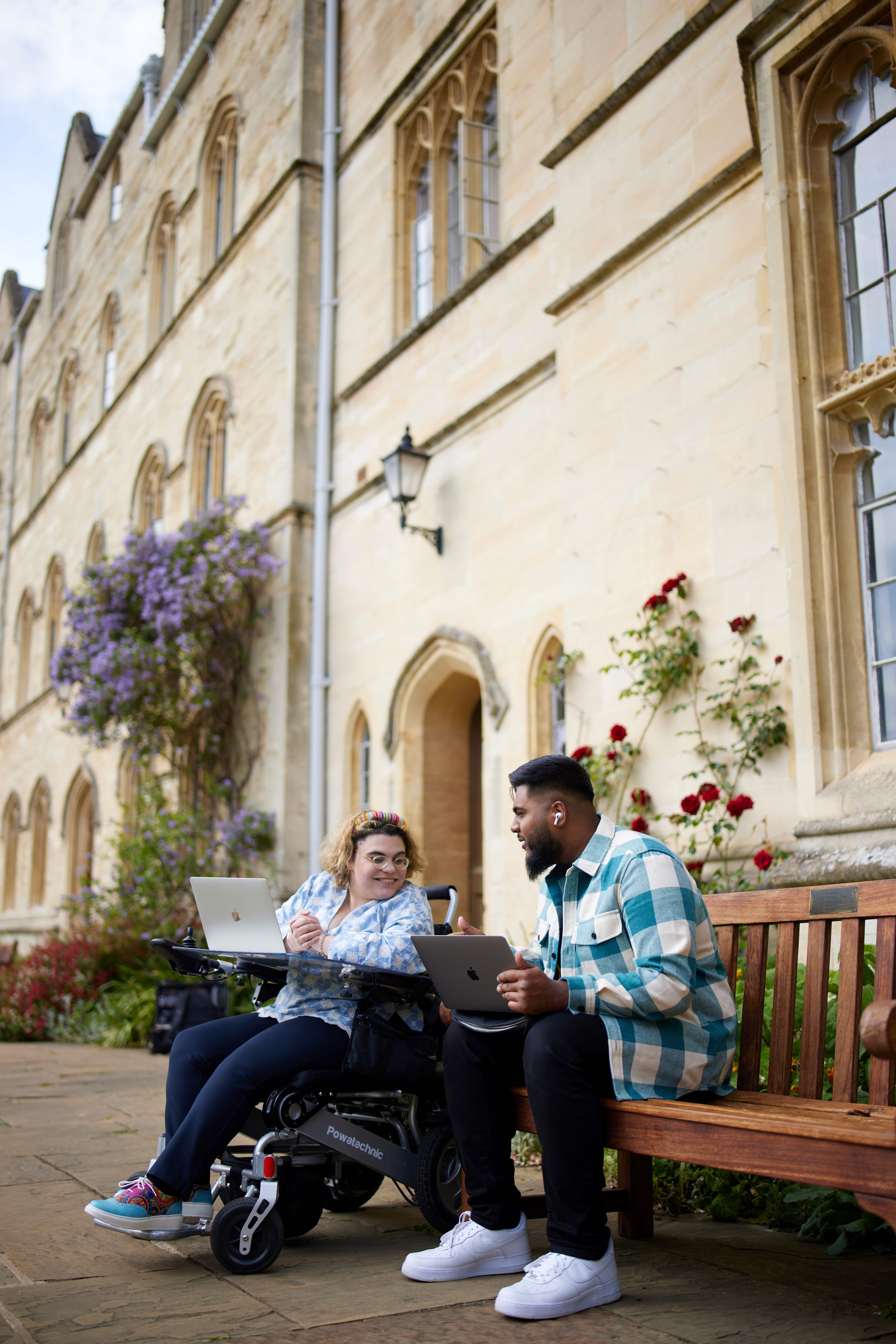Academic Life
At Pembroke, students are part of an integrated academic community where undergraduates work closely with postgraduates and academics of all levels, both formally in tutorial teaching settings, and informally in discussion groups, mentoring schemes and over dinner. We share research, discuss ideas, and challenge one another to consider the connections and dialogue between our different disciplines, helping each of us to grow and learn, whatever stage of our academic journey we're at.
Tutorials

Tutorials represent a distinctive facet of undergraduate academic life at Oxford, distinguishing it from many other universities. They serve as a primary mode of teaching, fostering in-depth discussions and critical thinking among students. Unlike conventional classroom settings, tutorials offer an intimate conversational environment within small groups where there is often no right or wrong answer to the work you’ll be discussing.
Students are expected to work independently in advance of each tutorial. Prepared work then forms the basis of rich and nuanced discussions during the tutorial and provides a springboard to explore related topics or concepts not covered in that week’s prepared work.
Initially, the tutorial system may seem daunting as it is different to anything you will have experienced before. However, you’ll soon adjust to this mode of learning and gradually gain confidence and proficiency, benefiting from the exchange of ideas and perspectives among peers. Each tutorial presents a unique experience, shaped by the distinct perspectives and teaching styles of individual tutors, offering a refreshing variety in the learning process.
In essence, tutorials represent a dynamic and enriching educational experience at Oxford, which foster intellectual growth and encourage students to push the boundaries of their understanding.
Student Experiences

At first I was anxious about the workload, but once I arrived I soon realised that it’s very manageable - almost everyone seems incredibly passionate about what they're reading, whether that’s medicine or Machiavelli, and that sense of enthusiasm made getting into the groove much easier.

In allowing myself to fully engage in the topic, including meeting with some of the leading researchers in the field, I found the sense of work greatly diminished.
Skills Hub
At Pembroke, we are dedicated to supporting your academic success. Our Skills Hub for Academic, Personal and Professional Skills provides tailored support to help you thrive.
Whether you're a new student or further along in your academic journey, we have a wide range of resources and opportunities tailored to your needs.
Dr Dyedra Morrissey, our Retained Lecturer in Study Skills and founder of the Skills Hub, is available to offer support, advice or assistance with:
- Academic skills (e.g. essay writing, reading and note taking)
- Personal skills (e.g. time management, goal setting and avoiding burnout)
- Professional skills (e.g. presentation skills, teamwork, project management and careers)
In addition to individual support, the Skills Hub runs lectures and workshops throughout the year, covering a range of topics. These sessions are aimed at and beneficial for all Pembroke students, from offering new Freshers guidance on navigating the academic rigor of university life, to equipping final year students with the tools and strategies necessary to excel in exams.
JCR/MCR Mentoring Scheme
Our JCR/MCR Mentoring Scheme is an opportunity for graduate students to offer academic, study skills and career guidance to undergraduates.
Both graduate and undergraduate students in any year group can sign up for the initiative, which aims to facilitate effective learning and encourage a support network among the Pembroke student body.
The mentoring scheme is for people who want to explore their own subject or a new subject further, think more and gain advice about their future (whether that's in acadaemia or elsewhere), or just chat with someone who's done it all before to foster relationships with others in College.

Joint Courses

At Pembroke we are passionate about joint courses and the value and opportunities they offer. We have a thriving community of students studying lots of different combinations.
Studying subjects as joint courses is rewarding, interesting and challenging. It is a great way to carry on studying two subjects you love, or to try something new! Joint courses help you to explore how different disciplines challenge and complement each other, and allow you the flexibility to pursue your particular interests. You'll also benefit from being a part of two subject communities, with lots of people in the same boat and an excellent support network.
You'll develop a broad range of skills and will have the choice of a wide variety of papers in both subjects. Joint courses are often taught by tutors who are interested in combining the skills and methodologies of different subjects, and their research will be at the cutting edge of their field.
Our tutors really understand how to help you get the most out of studying joint courses and are committed to helping you succeed and manage your academic workload, as well as explore your interdisciplinary passions for your subjects.
Discover the joint courses we offer on our Courses page.
The 3CR
The 3CR initiative encourages all members of the College to realise that they are part of Pembroke’s research community.
'3CR' represents the three common rooms: the JCR (Junior Common Room), made up of undergraduate students; the MCR (Middle Common Room), made up of postgraduate students; and the SCR (Senior Common Room), made up of Fellows, tutors and post-doc researchers.
The initiative invites members of the three common rooms to showcase their own research and hear about others’ research at the 3CR talks, which are short pre-dinner research presentations or at the Pembroke Reading Group, where books written by Pembroke’s own are discussed. It’s a unique initiative which brings us all together and encourages collaboration and inter-disciplinary exploration to foster a strong Pembroke research community.